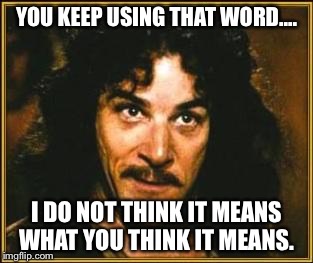New head of S. Korea’s ruling party once said North’s abuses were “not something other countries can intervene in”
ON SATURDAY, SOUTH KOREA’S RULING “DEMOCRATIC” PARTY PICKED LEE HAE-CHAN as its new Chairman. Lee, who previously served as Prime Minister under Roh Moo-hyun, promised “unwavering efforts toward … inter-Korean peace.” The Joongang Ilbo calls him “a staunch liberal.”
Lee replaces Choo Mi-ae, another “liberal” who was fond of making public threats to sue opposition politicians for criminal libel. In South Korea, the term is also broad enough to include the President’s Chief of Staff, Im Jong-seok, who as far as anyone can tell from his public silence is an unreconstructed sympathizer of North Korea’s ultra-nationalist totalitarianism, who once led a violently anti-American student group, who funneled royalty payments to Pyongyang not so long ago, who also recently filed a politically motived defamation suit to silence a critic. It includes the conspiracy theorists from the PSPD, the refugee-persecuting legal goon squads from Minbyun, and this guy:
This man will affect US-ROK-DPRK relations far more than you’d imagine. Enter Park Sun-won, new special advisor to Seo Hoon the spy master. As a student activist, Park served jail term for leading occupation of Seoul American Center in 1985. https://t.co/IOcsDgy8V5
– Subin Kim (@SubinBKim) August 23, 2018
To Korea’s social-nationalists and the journalists who buy into their lexicon, it is forever 1989, and whatever they suppose Chun Doo-hwan would have disapproved of the most meets their definitions of “liberal” and “democratic,” in the same sense that they can refer to North Korea as a “Democratic People’s Republic” without a snicker or a roll of the eyes. Some people see nothing absurd about canonizing even the would-be violent North Korean insurgent and duly convicted traitor,1 Lee Seok-ki, as a “liberal.”2 By this logic, of course, Stalin himself would have qualified as a liberal before August 23, 1939 and after June 22, 1941. From the Joongang Ilbo report on Lee Hae-chan’s election:
Lee is one of South Korea’s most prominent liberal leaders and is well-versed in both administrative affairs and party politics. He is known for close relations with President Moon Jae-in. He served as prime minister from 2004-2006 under the administration of President Roh Moo-hyun. President Moon was Roh’s chief of staff.
“I will devote my all to the success of the Moon Jae-in government, victory in the general elections and recapturing power,” Lee said in an acceptance speech. “First of all, I will focus on stabilizing the livelihoods of average citizens.”
Lee also called for further improvement in relations with North Korea. After a third inter-Korean summit, Lee said he hopes the ruling and opposition parties will form a joint delegation and visit the North for reconciliation discussions. [Yonhap, via the Joongang Ilbo]
Here, Lee signals a certain sensitivity to the political cost of his party’s Chavezista economics, but soon shifts to what matters most to him: staying on His Porcine Majesty’s good side. Here is what Chairman Lee said about that topic a few years ago:
“Politically speaking, one country deeply arguing over a domestic political problem of another country or intervening in it is a diplomatic discourtesy,” Lee said on a PBC radio show. “There is a human rights issue in North Korea. It is true they have it, but it is up to North Korea to deal with it. It’s not something other countries can intervene in.” [Joongang Ilbo, June 5, 2012]
At least he didn’t say “pearls for a pig.” But see, here’s the thing about that whole non-interference business:
More here. Once again, we have more proof of Stanton’s Law of North Korea “engagement” – engagement never changes Pyongyang, but Pyongyang always changes the engager. By now, of course, the North Koreans have had plenty of experience in spotting an easy mark, which is why I’m always puzzled when I hear people boast about the number of times they’ve visited Pyongyang, as if it’s evidence of Pyongyang’s great respect for them.
~ ~ ~
1. Note well that I’ve called Lee as a putative insurgent and even a traitor — as per his conviction — but not a terrorist. The attacks he plotted would have been against infrastructure for the purposes of impeding South Korean resistance to an invasion. Agree with Lee’s aims or not, infrastructure targets can be legitimate military targets under the laws of armed conflict. Attacks on them for strictly military reasons, rather than simply to terrorize people into agreeing to political demands, do not meet the elements of terrorism as the law defines it.
2. To many right-wing Koreans, it is forever 1952, and the highest expression of “democracy” is jailing fifth columnists who are subservient to a totalitarian ideology, even if a few actual liberals happen to become collateral casualties. For most Americans, too, it is forever 1952. To us, defending Korea’s democracy means posting American infantry to protect it from a conventional cross-border invasion. This now seems like a needlessly strenuous way for Pyongyang to get everything it wants from the South, and nothing it doesn’t want.




